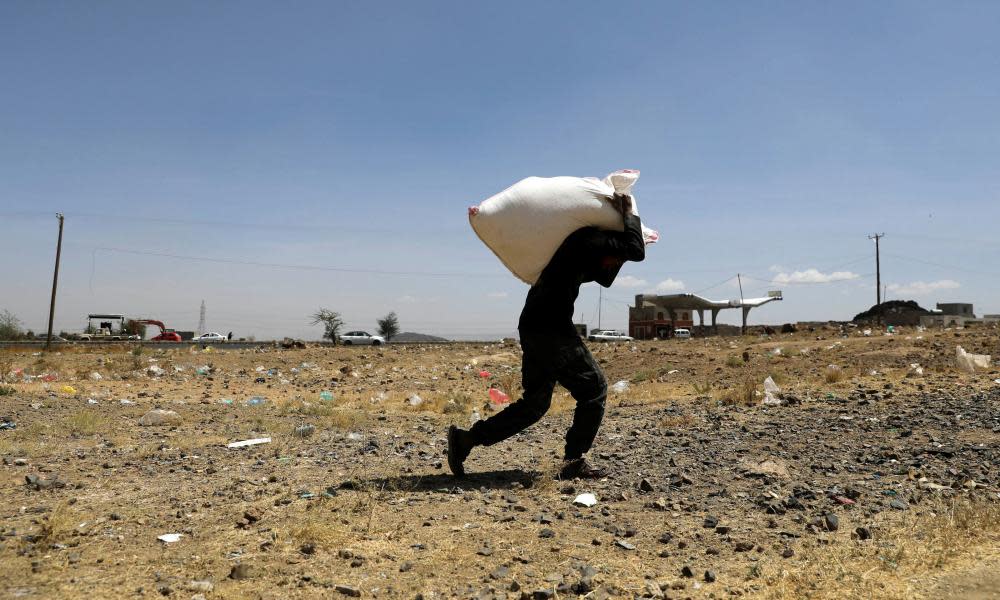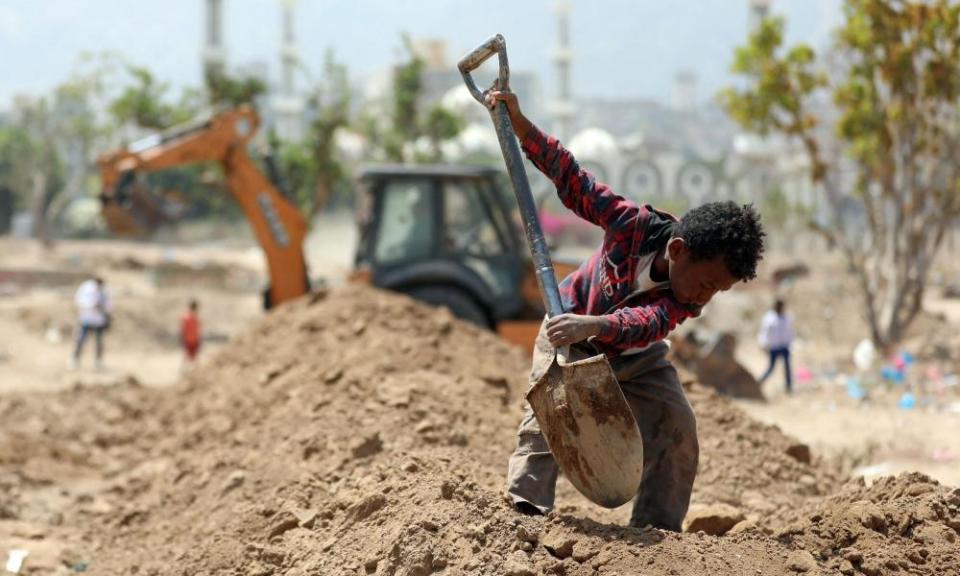No impact assessment made of Yemen aid cuts, minister admits

The UK government has admitted that no assessment has been carried out of how “dire” the impact of the 60% cut in foreign aid to Yemen will be.
Related: UK 'balancing books on backs of Yemen's starving people', says UN diplomat
MPs demanded to know what impact the aid cuts would have on women, disabled people and internally displaced Yemenis in a country the UN has categorised as having the world’s worst humanitarian crisis.
Chris Bold, development director for Yemen at the Foreign, Commonwealth and Development Office (FCDO), told the Commons international development committee on Tuesday: “We haven’t done an impact assessment.”
James Cleverly, minister for the Middle East and North Africa, said the cuts were coming at a time of “terrible” and “heartbreaking” conditions in the country.
He told the committee that “the risk of famine is significant”. Yemen was also experiencing a “second wave” of Covid-19, he said. “Infection numbers look as though they are doubling since the beginning of the year.”
The FCDO was focusing most of its reduced funding on feeding people, Cleverly said, while also looking at diplomatic efforts to end the conflict.

The United Nations has warned that Yemen could be facing the worst famine in modern history. More than 16 million Yemenis are “food insecure”, with nearly 50,000 already facing famine-like conditions, and a further five million only one step away, it said.
Aid organisations, giving evidence to MPs, gave a stark assessment of the aid cuts’ impact. Gillian Moyes, Save the Children’s deputy Yemen director, said it expected its cash-transfer programme, which had increased the numbers of families receiving acceptable food from 46% to 93%, would end in June.
“We are having to assume the programme will end and we are preparing for that,” Moyes said. “Our conclusion is that these kinds of gains can be lost.”
Sultana Begum, advocacy manager for Yemen at the Norwegian Refugee Council, told MPs that UK investment had meant families were able to keep their children in school, and that girls were not being married off young. She said the UK had been a “leader in terms of advocacy” but that status was in danger of being undermined at the G7 meeting in June. “Humanitarian diplomacy isn’t enough,” she said. “It will have to be matched by funding, and that’s what will give the UK its credibility.”

 Yahoo Movies
Yahoo Movies 
